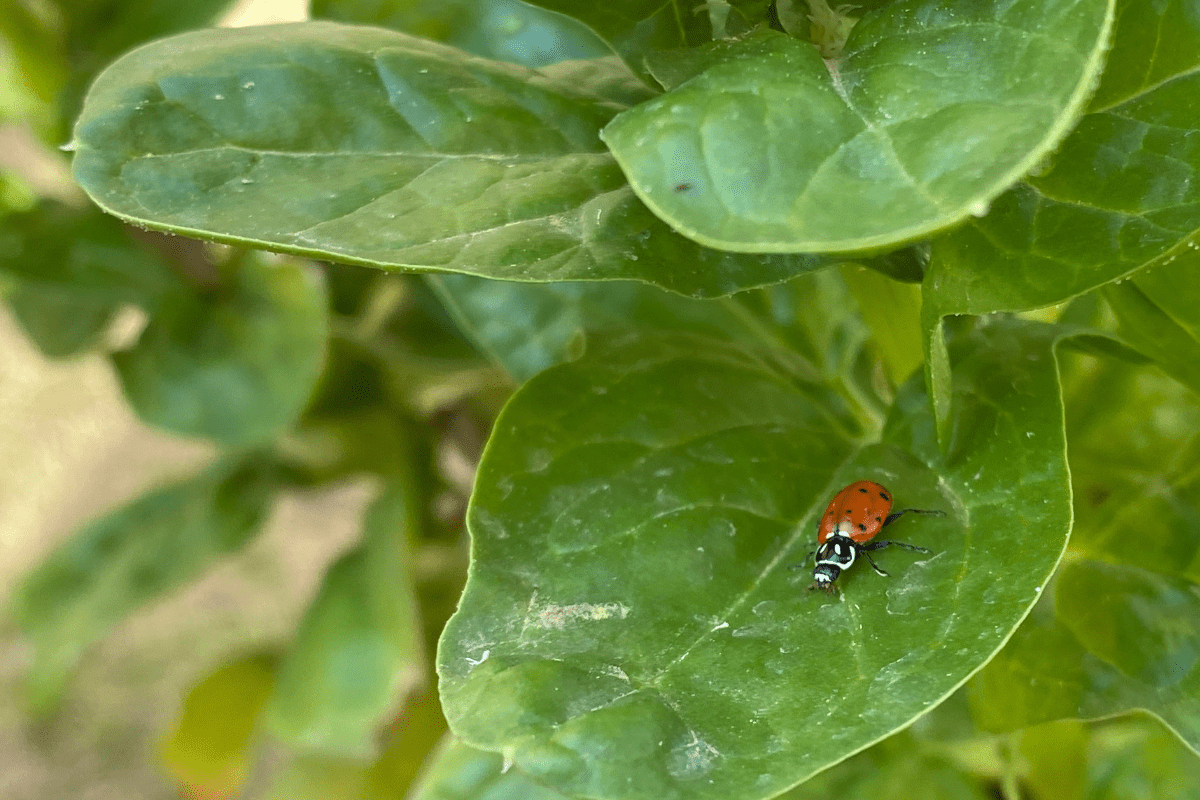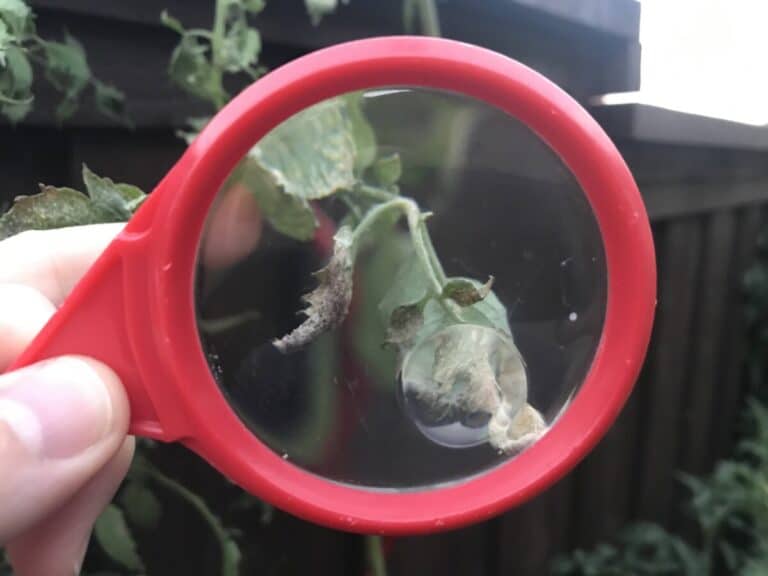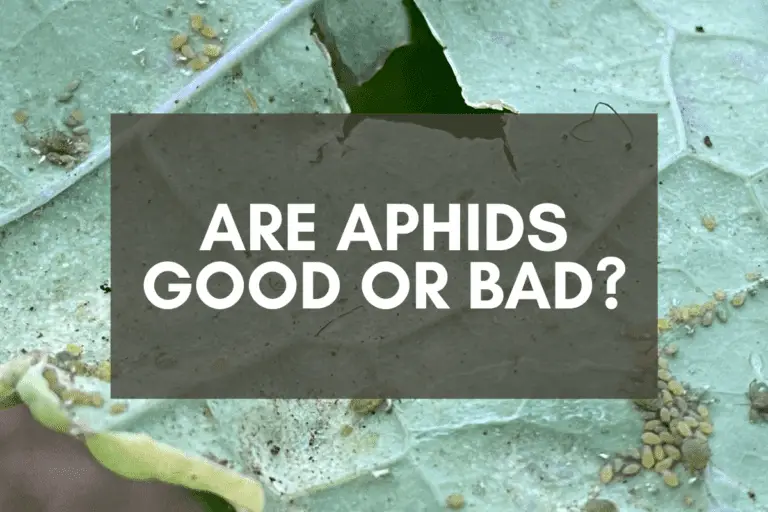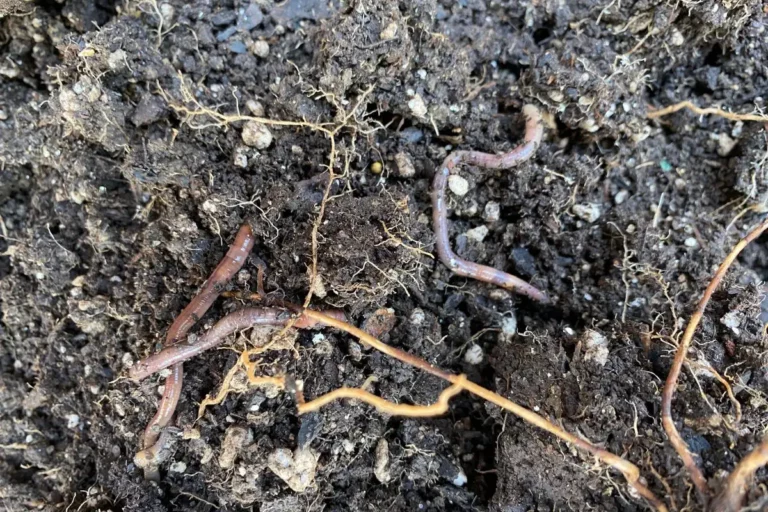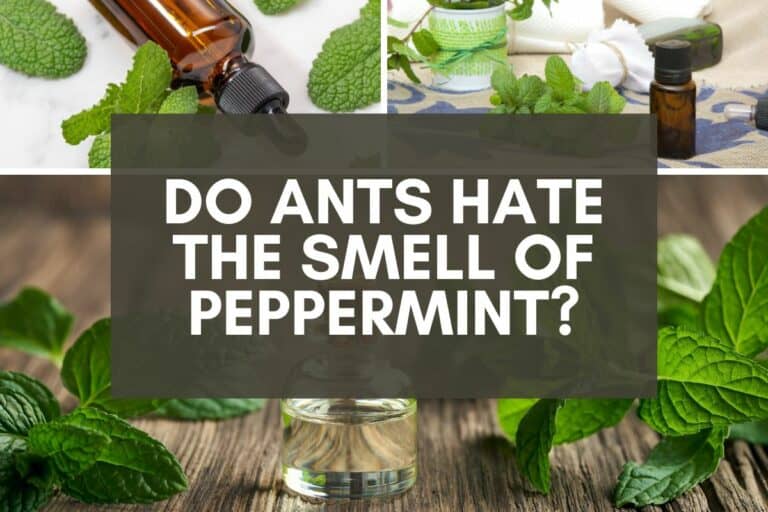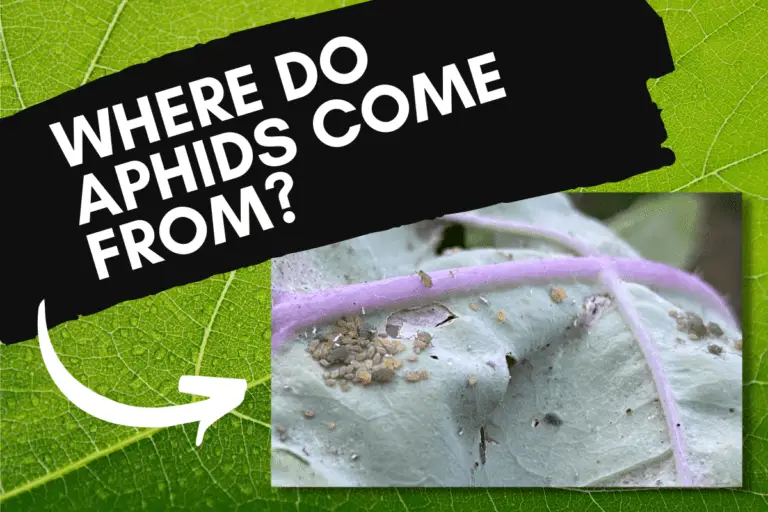Will Neem Oil Kill Ladybugs? Here’s What You Need to Know
When spring rolls around each year, I’m always excited to see the first ladybugs hanging around my garden. But my garden usually needs more help than ladybugs alone can provide (especially against pesky spider mites), so this is why I so often turn to neem oil to help repel and get rid of nasty bugs.
If you’ve considered using neem oil in your garden, you might be wondering: Does neem oil kill off ladybugs and other beneficial insects?
According to recent research, neem oil doesn’t have any noticeable cytotoxic effects on ladybugs, either in their larval or adult stages. However, ladybugs will suffer harm if sprayed directly, so care should be taken to use neem oil later in the day when beneficial insects are no longer active.
Whenever you use an insecticide, even if it’s a naturally occurring one like neem oil, there’s bound to be side effects of some kind. Thankfully, the side effects on ladybugs appear to be quite minimal.
Ladybugs are members of the family Coccinellidae. There’s around 5,000 different species, and they’re loved by gardeners all across the world. Depending on where you live, you might refer to these bugs as ladybird bugs, ladybird beetles, or simply ladybirds.
I’ve always called them ladybugs, so I’ll do so throughout this article. But I wanted to clarify so as not to accidentally confuse anyone.
Now that we’ve got that out of the way, let’s take a closer look at the science to understand what effect neem oil might have on ladybugs and how you might take care when spraying so that you don’t accidentally injure any of these helpful garden friends.
Does Neem Oil Hurt Ladybugs?
Neem oil is known for getting rid of destructive bugs. However, it works in 2 very different ways.
The first is the most obvious but the least effective method: When neem oil concentrate is mixed with water and liquid soap (which serves as an emulsifying agent, allowing the oil and water to mix well), what you’re left with is a soapy, oily spray solution.
Assuming you’re spraying insect pests directly, when you cover your plants in this neem oil solution, you’ll also coat unwanted insects in it as well.
Insects breathe through small holes in their skin called spiracles, so any substance that coats their skin in oil can choke off their ability to breathe, thus killing them quickly.
Unfortunately only soft-bodied bugs and younger hard-bodied bugs tend to suffer and die when coated in a soapy, oily spray. Larger, more mature bugs will get annoyed if they get sprayed, and either scamper or fly away, but they typically won’t die unless you immerse them in soapy water, which will typically drown them in 30-60 seconds.
The second and more potent way that neem oil works is through its primary chemical compound, azadirachtin.
Azadirachtin has been shown to impact over 200 garden pests, and it’ll repel, hurt, or kill unwanted bugs in many different ways. Unlike sprays that kill bugs on contact, neem oil takes several days to get rid of bugs since it must be ingested in order to disrupt their biological processes and cause cellular damage.
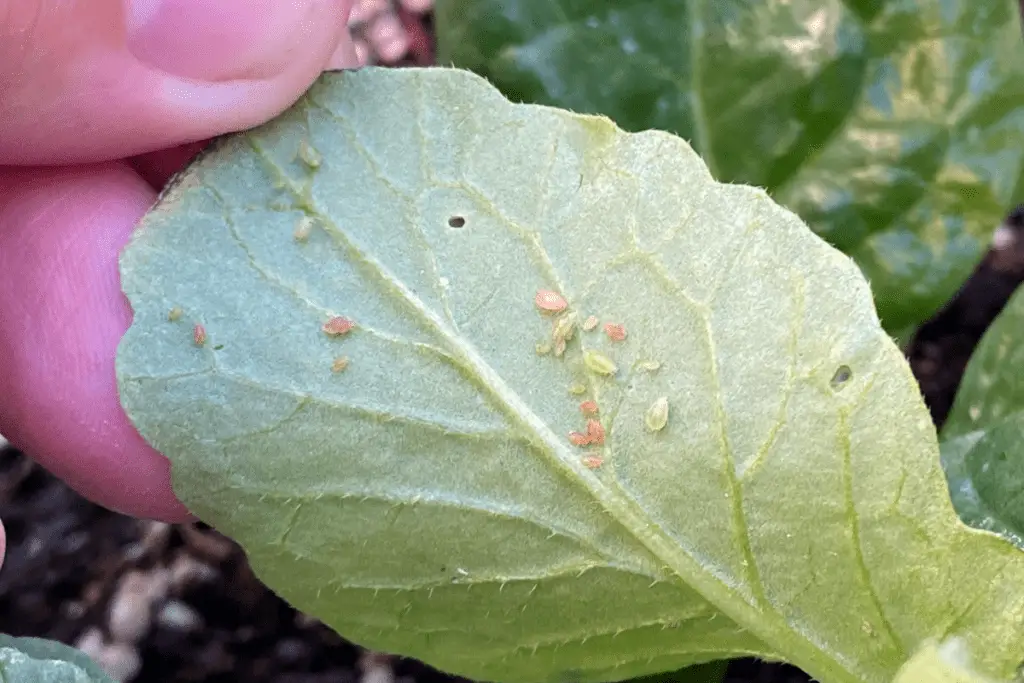
And that’s exactly what happens. As bugs chew on neem-sprayed foliage, they ingest neem oil, and the azadirachtin in the oil begins harming them in many different ways. It’ll impact their ability to grow, feed, digest food, molt, and reproduce.
Given all the ways that neem oil can harm garden bugs, it’s incredible that there’s not more research on what effects neem oil might have on ladybugs.
But here’s what we do know about neem oil and ladybugs: As researchers have noted, neem oil is mostly safe when it comes to ladybugs and pest management methods.
In fact, one group of researchers tested out this hypothesis by treating ladybugs with 3 different neem oil concentrations and looking at whether doing so impacted their ability to lay and hatch eggs and their overall life cycle. What they found was comforting because, in general, ladybugs were relatively unaffected by neem oil.
But I use the phrases “mostly safe” and “relatively unaffected” because there was one thing researchers noticed: Female ladybugs handled the neem oil treatments just fine, but neem oil seemed to increase male ladybug mortality by around 10%.
On the one hand, I think the reward is worth the risk because of the many bugs that neem oil will stop in their tracks. On the other hand, if you’re using neem oil in any kind of widespread or commercial manner, you might theoretically harm the overall ladybug population by reducing the supply of available male ladybugs.
But in general, neem oil doesn’t do to ladybugs what it does to a wide range of other bugs.
Here’s one final word of advice: You should avoid spraying neem oil during the morning or afternoon hours. As I’ve noted in an article on using neem oil to kill spider mites, you can inadvertently harm your plants if you spray neem oil during the day because the sun will literally bake your plants’ foliage.
However, there’s another good reason not to do so. If you’re not careful, you might accidentally coat beneficial insects such as ladybugs in a neem oil spray. They’ll likely survive a light spraying, but I don’t like to risk it.
If you wait until the sun is setting to spray your neem oil, you’ll not only avoid the heat of the day while still having the necessary visibility to do your work. You’ll also decrease the risk of injuring helpful pollinators or predatory bugs.
One final word of warning: You need to store you neem oil well. If you don’t, your product might deteriorate over time and lost much, if not all, of its effectiveness.
If you’ve been spraying your plants with neem oil but haven’t seen any results, I encourage you to take a look at my articles on how long neem oil lasts and the 9 reasons your neem oil might not be working as it should. That way, you can diagnose whether or not you need to purchase newer neem oil.
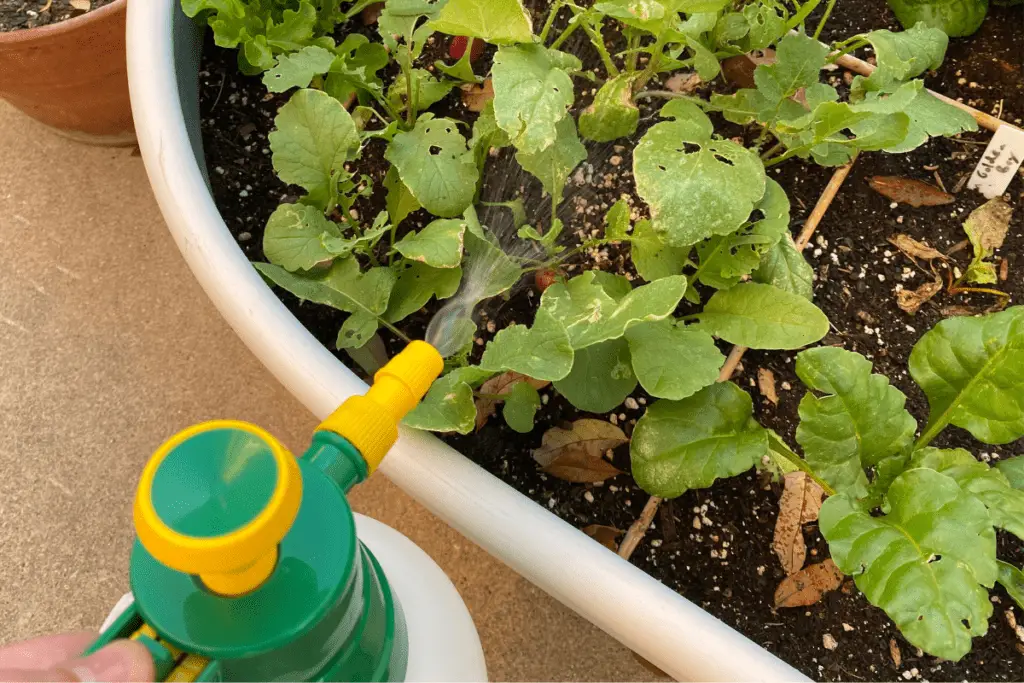
Does Insecticidal Soap Kill Ladybugs?
Much like neem oil, insecticidal soap can do wonders for your garden. In fact, I often use insecticidal soap as the emulsifying agent in my neem oil sprays.
My preferred brand is Safer Brand Insecticidal Soap, in case you were wondering. If you purchase the concentrate and mix your own spray, you’ll save a ton of money.
But what does insecticidal soap do to ladybugs? Can it kill them?
Adult ladybugs can handle accidental light sprayings with insecticidal soap. But if they’re sprayed heavily with soapy water, they might not survive. This is especially true for ladybug larvae since they do not have fully-formed exoskeletons and are thus more susceptible to insecticidal sprays.
If you see ladybugs, and especially if you see ladybug larvae, don’t spray your plants with insecticidal soap. I would wait until the sun is setting, then check your plants again because ladybugs will often migrate from one plant to the next. If you no longer see any signs of them, you’ll be able to go ahead and spray your plants thoroughly.
What Pesticides Kill Ladybugs?
But what about stronger pesticides? Which ones kill ladybugs?
Chemical pesticides will often hurt or kill ladybugs, especially those (like Sevin or Malathion) that are considered “broad spectrum” because they’re designed to kill off many kinds of bugs. But natural products such as diatomaceous earth or vinegar-based sprays can also prove harmful to ladybugs.
The problem with broad spectrum insecticides is that they’re somewhat indiscriminate killers, especially those that kill on contact. Sure, they’ll take care of any bad bugs in your garden, but there’s a high likelihood that they’ll also take care of the good bugs too.
Diatomaceous earth is an excellent product for keeping unwanted pests off of your plants–since these microscopic rock fragments will slide through insects’ exoskeletons on contact–but you’ve got to be careful with this product. If you overuse it, you risk destroying beneficial pollinators and predatory bugs alike.
Vinegar sprays are similar. These homemade sprays can be effective against a wide range of garden pests, but they can also harm beneficial bugs if you unintentionally spray them directly with a vinegar-based solution.
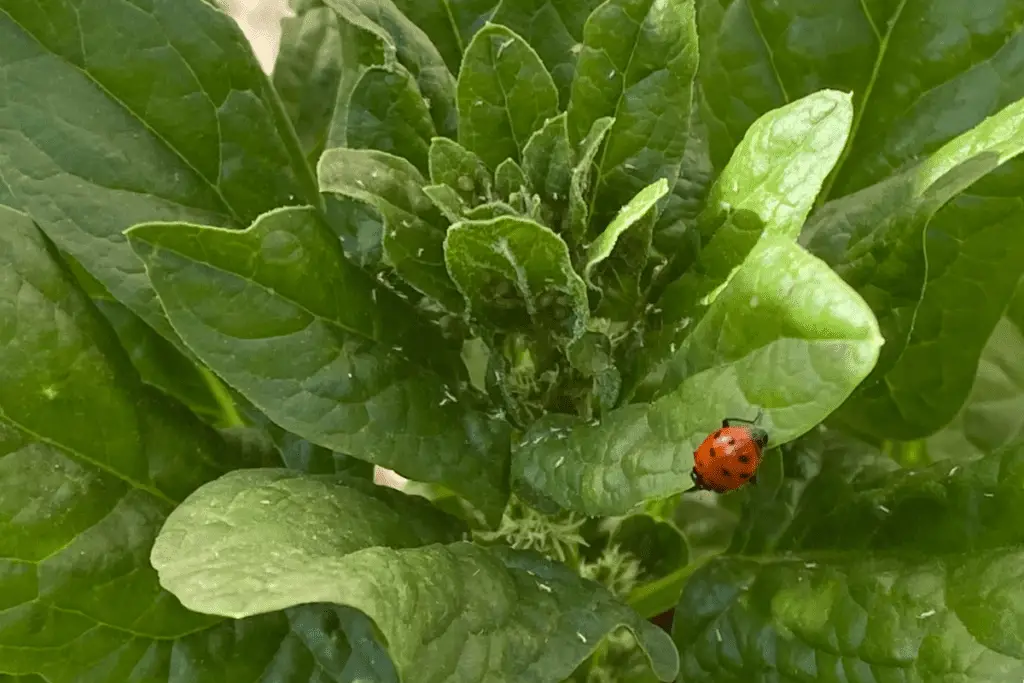
How Do I Kill Aphids Without Hurting Ladybugs?
I’ve written extensively about aphids because they’re a notorious global pest that can survive cold weather and rebound quickly from harsh winters. They come in a variety of colors–green, black, white, red, and yellow, to name a few–and if you don’t know what you’re looking for, you can easily overlook an aphid infestation.
The problem with aphids is twofold: They’re highly invasive, and they spread easily from plant to plant.
The good news is that ladybugs love aphids, both ladybug larvae and adult ladybugs alike. In fact, a single ladybug can theoretically consume up to 5,000 aphids in its lifetime, as long as it has a ready supply.
But how do you kill off aphids without also killing off ladybugs?
The most effective way to kill aphids without killing ladybugs is to begin by inspecting plants for signs of ladybug activity. Strong water sprays will often knock aphids off plants and subsequently kill them, but most aphid infestations require the use of soapy water or neem oil sprays.
The key lies with your initial inspection. You won’t be able to see every single bug on your plants, but ladybugs are often quite distinctive, so you’ll see their colored bodies stand out fairly well against green foliage.
If ladybugs are present, you should delay spraying your plants for a few hours, then examine them again and spray once ladybugs are no longer visible.
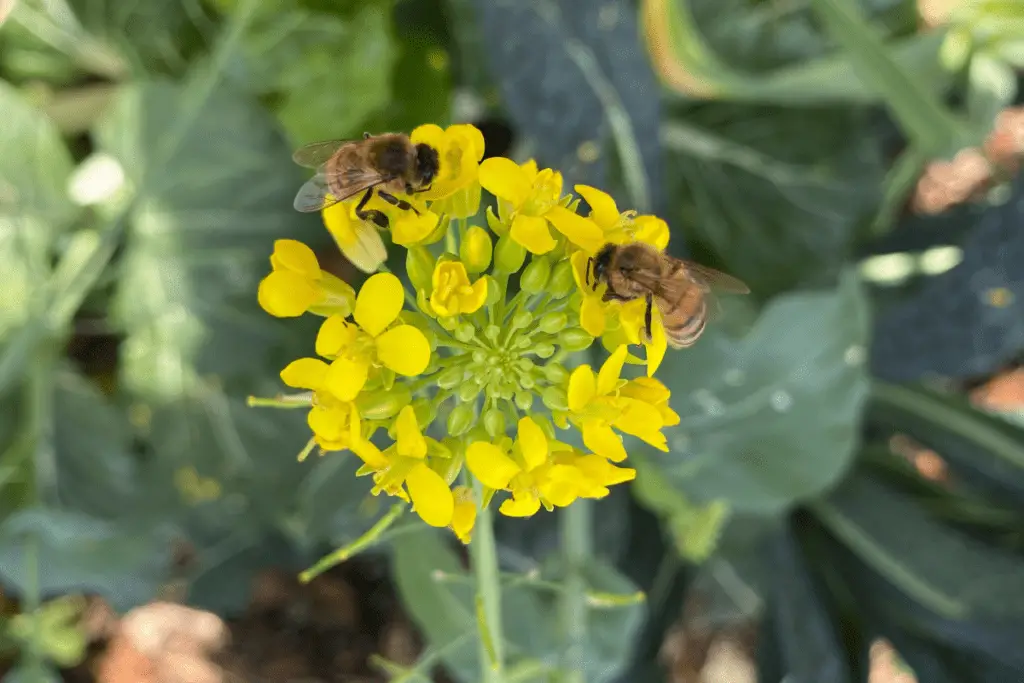
Does Neem Oil Harm Beneficial Insects
If you’d like to take a detailed look at this question, check out my article on neem oil and beneficial insects, but here’s a quick rundown.
Generally speaking, neem oil will not harm beneficial insects. Ladybugs are relatively unaffected by it, as are most beneficial pollinators since they don’t ingest plant foliage. Unfortunately, lacewing larvae are susceptible, so care should be taken when applying neem oil to plants.
But let’s be clear: Beneficial insects can be harmed by neem oil if you spray them directly, especially if you douse them in spray.
If you follow my guidelines for making effective neem oil sprays, you’ll almost never apply too much neem oil, and you’ll never need to worry about rinsing neem oil off of your plants.
But if you spray your plants heavily with neem oil, you run the risk of dousing beneficial insects and thus either choking off their airways or causing cytotoxic problems, which typically manifest several days later since neem oil takes 4-7 days to kill off most bugs.
I had to deal with an awful spider mite infestation last year, and I sprayed my plants heavily with neem oil and insecticidal soap sprays. I had to be very careful about the time of day, and I kept a close eye on the plants to ensure that I wasn’t accidentally killing off beneficial insects.
If you’d like to read about what happened–and see photos of how spider mites nearly destroyed my tomato plants and how I successfully fought them off with neem oil and soapy water sprays–check out these articles:
- Can Plants Recover from Spider Mites? What You Need to Know
- Using Neem Oil to Kill Spider Mites: A Complete Guide
- Will Spider Mites Spread to Other Plants?
Here’s the good news: Although I got very aggressive with neem oil that year, I was very careful when it came to when and how I sprayed, and I noticed plenty of beneficial insects in my garden as the summer wore on.
Additional Reading
If you’d like to learn more about neem oil–and I think it’s a great idea to learn as much as possible about this incredible natural insecticide–I recommend checking out these articles:
